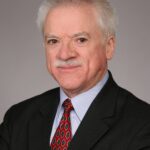President Barack Obama’s “ConnectEd” program would raise some $5 billion to expand high-speed Internet access in public schools through a new tax on cell phone bills. The president, according to The Washington Post and other outlets, would bypass Congress and have the Federal Communications Commission impose the tax.
The following statements from legal, tax, and technology experts at The Heartland Institute – a free-market think tank – may be used for attribution. For more comments, refer to the contact information below. To book a Heartland guest on your program, please contact Director of Communications Jim Lakely at [email protected] and 312/377-4000 or (cell) 312/731-9364.
“This is just more lawless unconstitutional action by President Obama, trying to rule by decree. He does not have the power to impose taxes without legislation. He may say it is only $5 per phone. But if he can impose $5 per phone by decree today, he can impose $5,000 by decree tomorrow, and then $50,000.
“The tax on tea that the American colonists rebelled against was only a penny. But they were smart enough to recognize that a penny imposed by undemocratic decree today established the principle for any amount to be imposed by decree tomorrow. Are Americans today capable of understanding that?”
Peter Ferrara
Senior Fellow for Entitlement and Budget Policy
The Heartland Institute
[email protected]
312/377-4000
“The last thing wireless consumers need is another surcharge tacked onto their bills. Depending on the state and city, taxes, fees, and surcharges already add between 15 and 25 percent to a monthly phone bill. The government needs to stop making telecommunications and broadband the ‘go-to’ service whenever it needs to raise revenues. Reducing telecom taxes and fees will do much more toward increasing broadband adoption – by schools and individuals – than any redistributive government program.
“E-Rate, one of the programs supported by the federal Universal Service Fund, which itself comes from a fee the FCC already imposes on phone users, goes to wiring schools and public libraries. Why the need for a duplicate program?”
Steven Titch
Policy Advisor
The Heartland Institute
Internet and New Media Policy Analyst
Reason Foundation
[email protected]
312/377-4000
“Congress is supposed to pass laws, including tax laws. The president is in charge of the executive branch of government, which is supposed to ensure laws are executed. It’s called separation of powers, something Americans should expect their Constitutional scholar president to know.
“Instead, we have a president who routinely skirts Congress. He issues executive orders to do things Congress won’t do. He fails to enforce things Congress has done. Recently he announced he is ordering a delay in implementing the employer mandate for health insurance, even though the so-called Affordable Care Act which Congress passed and he signed says the mandate ‘shall’ take effect in 2014. Now he wants the FCC, whose commissioners he appoints, to impose taxes.
“I remember being taught in school we are a nation of laws, not of men. I wonder when that changed and if school textbooks have been updated to reflect this change.”
Steve Stanek
Research Fellow, Budget and Tax Policy
The Heartland Institute
Managing Editor
Budget & Tax News
[email protected]
312/377-4000
“The decision whether or not to raise taxes is one that belongs to Congress, not to an unelected federal agency. Moreover, if we want speedier Internet access, Congress should repeal many of the federal regulations that hamper development of high-speed wi-fi.
“Estonia is sometimes nicknamed E-stonia because it is the envy of the world for its high Internet speed and broadband availability. This Eastern European country did not leapfrog the United States in broadband by imposing a tax on another symbol of modern communication: cell phones.”
Ronald D. Rotunda
The Doy & Dee Henley Chair and Distinguished Professor of Jurisprudence
Chapman University
[email protected]
312/377-4000
“The notion of a limited government of enumerated powers died long ago when Congress granted itself the power to legislate on almost every issue under the ‘interstate commerce’ clause of the U.S. Constitution – hence the federal government’s involvement in schooling, which used to be a state and local issue. And under Chief Justice Roberts’s ill-advised opinion upholding the Affordable Care Act, Congress has virtually unlimited power to achieve its aims in any area by using the power to tax. But the Constitution still explicitly vests the power to tax in the Congress, not in the executive branch and not in administrative agencies like the FCC.
“Apparently in today’s America, the Congress itself is no longer necessary. Witness this quotation from White House deputy chief of staff Rob Nabors, who according to the Washington Post is ‘coordinating executive actions’: ‘It’s got a lot of the characteristics of big-vision policy that you really don’t get through legislation anymore.’ Or, as Steven Spielberg put the words in Abraham Lincoln’s mouth in his tribute to Barack Obama: ‘Buzzard’s guts, man! I am the President of the United States of America! Clothed in immense power! You will procure me these votes.’
“So there you have our new constitution: ‘We the People of the United States hereby invest in the President and his appointees all necessary power to implement the Big Vision Thing.'”
David L. Applegate
Policy Advisor, Legal Affairs
The Heartland Institute
[email protected]
312/377-4000
“Excellent. More wealth redistribution from the Obama Administration. The E-Rate program is already a waste, fraud, and abuse nightmare mess. For which we pay dearly in taxes. The president’s response? Let’s tax Americans anew, to rake us for billions more to pour into the un-examined and un-reformed E-Rate program.
“We spend more than $12,000 per government school student per year. We don’t need to spend even more – we need to better spend the huge amount already allocated. Shed some consultants and mid-level bureaucrats – and, if you wish, spend that money on even higher-speed Internet.
“The government school system itself is a nightmare mess – for a wide array of reasons. Lack of even faster broadband is way, way down that list. Let’s prioritize better, shall we?”
Seton Motley
President, Less Government
Policy Advisor, Telecom
The Heartland Institute
[email protected]
312/377-4000
“Here we go again. Unwilling to attempt mustering the necessary congressional votes to raise monies for ConnectEd and circumventing debate on the program altogether, the president has devised yet another executive order that amounts to taxation without representation.
“Federal, state, and local taxes already account for up to 24 percent of monthly cell phone bills in some states, and granting the Federal Communications Commission authority to increase that tax for an additional $5 billion in revenue should arouse a resounding hue and cry from every U.S. citizen who still believes in the rule of law.
“Sure, sure it’s ‘for the kids,’ but recent history is replete with other regimes wherein presumed lofty ends were employed to justify underhanded and questionably illegal means.”
Bruce Edward Walker
Policy Advisor, Telecom
The Heartland Institute
[email protected]
312/377-4000
“With actions such as unilateral delays of Obamacare, use of the EPA to create carbon-dioxide regulations, ignoring of immigration laws, and now a plan to have the FCC impose new taxes, President Obama is truly Lincolnesque: He is ignoring the constitutional separation of powers, habeas corpus, Congress’s authority over the budget, and his duty to enforce federal law. The big difference, of course, is that the nation today is not involved in a bloody Civil War. Frankly, however, it seems he’s doing all he can to change that, too.”
S.T. Karnick
Director of Research
The Heartland Institute
[email protected]
312/377-4000
The Heartland Institute is a 29-year-old national nonprofit organization headquartered in Chicago, Illinois. Its mission is to discover, develop, and promote free-market solutions to social and economic problems. For more information, visit our Web site or call 312/377-4000.










